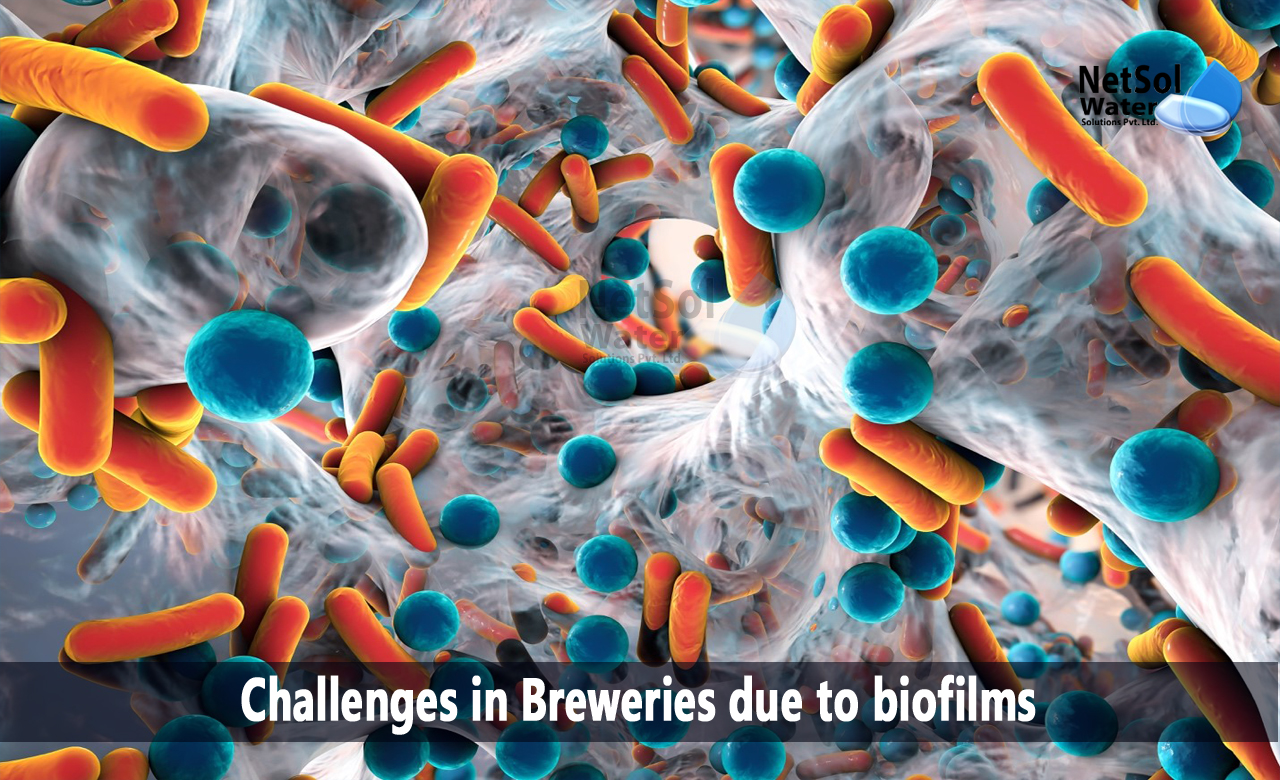Breweries are meticulous about cleanliness. These closely monitor the control of bacterial development throughout the entire process on a daily basis, because the effects of bacterial action might include off-taste, aesthetic changes, and unpleasant odours.
In order for bacteria to flourish, biofilms must form. Biofilms are the main means by which microorganisms survive and reproduce, and they also cause fouling and device damage. Numerous factors can have a significant impact on the operations, including production costs, increased water and energy use, production yield, brand reputation, etc.
What is a Biofilm?
Microorganisms adhered to surfaces form a layer known as biofilm. The biofilm that grows in breweries is typically made up of thriving populations of various bacterial, yeast, and fungal species, which produce a layer of sticky accumulation that forms an extremely adherent, protective shell. Biofilm grows and matures in the presence of nutrients, making it more difficult to manage and get rid of.
Although, alcohol itself has potent anti-microbial capabilities, finished beer does not contain enough alcohol to provide an unfavourable environment for bacteria growth. As a result, biofilms are prevalent practically everywhere in the beer-making process, including in tanks, filters, conveyors, pipes, pasteurising equipment, heat exchangers, cooling towers, and bottling equipment.
What are the Challenges faced by breweries due to biofilms?
Even a tiny coating of biofilm can obstruct production by obstructing heat transfer, during essential heating and cooling operations since they are so strongly insulating. Additionally, biofilms can greatly increase the frequency and duration of cleaning procedures, and cause severe microbiologically influenced corrosion in processing equipment.
In addition to raising operational expenses, these issues may have a domino effect that affects different plant operations.
How can breweries manage biofilms?
A proactive strategy is necessary for controlling biofilm, and includes actions like:
1: Inspection and detection
This entails conducting a thorough investigation to identify biofilms and gauge their growth density, throughout the brewery plant.
2: Removal, Cleaning, and Disinfection
Physical-scrubbing, spraying, filtration, as well as chemical treatments are used, throughout this process.
3: Maintenance and Prevention
To prevent the establishment of a biofilm, this element needs regular, specialised maintenance.
Conclusion
Controlling biofilms necessitates specialized knowledge and experience. Netsol Water Solutions is aware of the operational difficulties faced by the brewing industry. We offer programmes and specific goods, tools, and know-how required to handle challenging issues, in your water systems.
Water treatment plant manufacturer and supplier
Netsol Water develops and produces water and wastewater treatment plants that are highly successful, at lowering water contaminants.
Our water treatment plants provide various cleaning solution in brand-new, cutting-edge technology, to clean and maintain your cooling water systems.
Netsol Water is Greater Noida-based leading water & wastewater treatment plant manufacturer. We are industry's most demanding company based on client review and work quality. We are known as best commercial RO plant manufacturers, industrial RO plant manufacturer, sewage treatment plant manufacturer, Water Softener Plant Manufacturers and effluent treatment plant manufacturers. Apart from this 24x7 customer support is our USP. Call on +91-9650608473, or write us at enquiry@netsolwater.com for any support, inquiry or product-purchase related query.



